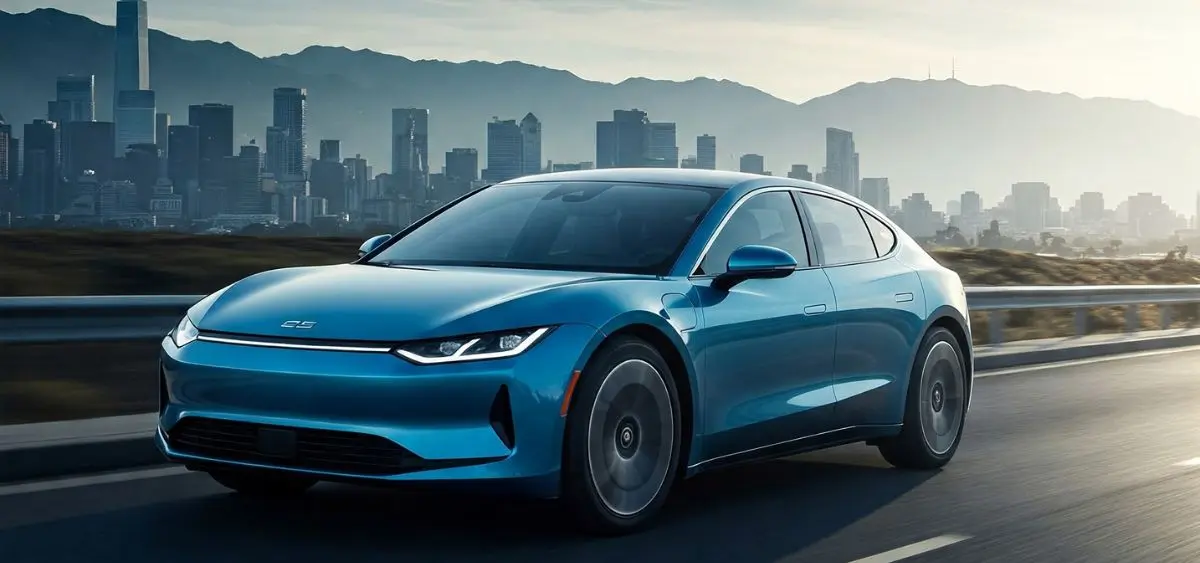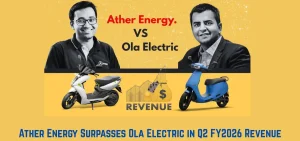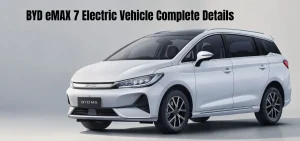EV Extended Warranties: Smart Investment or Waste of Money?
Owning an electric vehicle (EV) is a step toward sustainability, but protecting your investment beyond the standard warranty is essential. EV extended warranties help cover costly repairs for high-tech components like battery packs, electric motors, and software systems. With rising EV adoption, understanding extended warranties is crucial. Are they worth it or just an extra expense? What do they cover, and how do you choose the best one? In this guide, we’ll explore key details, hidden costs, and benefits to help you decide if an EV extended warranty is the right choice for your vehicle’s long-term reliability.
What Are EV Extended Warranties?
An EV extended warranty is a vehicle service contract that covers specific repairs after your factory warranty expires. While most manufacturers offer battery coverage for at least 8 years or 100,000 miles, extended warranties can provide additional protection for other essential components. Some automakers replace failing batteries entirely, while others cover replacements when battery capacity drops below a set threshold.
Extended warranties outline covered repairs and exclusions, often excluding wear-and-tear parts like wiper blades, brake pads, and air filters. Also, check for deductibles—similar to car insurance, you’ll need to pay this amount before your provider covers the rest.
- You can buy an extended auto warranty when you purchase your vehicle or before or after its factory warranty expires.
- Some of the best extended auto warranty companies cover EV batteries in higher-tier coverages.
- EV extended warranties work best if you plan to own your vehicle past when the factory warranty expires.
Why Are EVs Need for Extended Protection?
Electric vehicles are cutting-edge machines, but their technology differs greatly from traditional cars. At their core lies the battery pack—a complex, costly component that can run tens of thousands of dollars to replace. Unlike gas engines needing tune-ups, EV batteries degrade over time due to charging habits, climate, and driving conditions.
Most manufacturer warranties last 8 years/100,000 miles, but what happens after they expire? Repair costs can skyrocket, leaving owners exposed to hefty bills. This is where EV extended warranties come in, offering peace of mind and financial protection. But are they truly worth it? Let’s dive into what they cover, their costs, and whether investing in one is the right choice for you.
What Does an EV Extended Warranty Cover?
Extended warranties for electric vehicles typically build on the coverage provided by the manufacturer’s warranty but extend the timeframe and mileage. While specifics vary by provider and plan, here’s a general overview of what you might expect:
- Battery and Electric Components: The most critical coverage for any EV owner is protection for the high-voltage battery pack, electric motor, and associated electronics. These are the most expensive parts to repair or replace, making their inclusion in an extended warranty essential.
- Charging Systems: Problems with onboard chargers, charging ports, or even home charging equipment (if included in the plan) can be covered. This is particularly important as charging infrastructure continues to evolve.
- Powertrain Components: While EVs don’t have traditional transmissions or exhaust systems, their powertrains still include components like reduction gears and cooling systems, which might be covered.
- Wear and Tear: Some extended warranties also cover wear-and-tear items like brakes and suspension, which can still apply even in EVs, despite regenerative braking reducing brake wear.
- Roadside Assistance and Towing: Many plans include perks like towing, trip interruption coverage, and roadside assistance, which can be invaluable if your EV breaks down far from home.
However, not all extended warranties are created equal. Some plans might exclude certain high-cost repairs or impose strict conditions, such as requiring maintenance at authorized dealerships. It’s crucial to read the fine print and understand what’s included—and what’s not.
The Cost of EV Extended Warranties: Is It Worth It?
The price of an EV extended warranty can vary widely depending on factors like the make and model of your vehicle, its age, mileage, and the level of coverage you choose. On average, you might pay anywhere from $1,000 to $5,000 for a multi-year plan, with luxury EVs or high-mileage vehicles commanding higher premiums. Some providers offer tiered plans, such as powertrain-only coverage, which is cheaper but less comprehensive, or bumper-to-bumper coverage, which is more expensive but covers almost everything. To determine whether an extended warranty is worth it, consider the following:
- Repair Costs: EVs are generally cheaper to maintain than ICE vehicles—no oil changes, fewer moving parts, and regenerative braking that reduces brake wear. However, when something does go wrong, especially with the battery or electronics, the costs can be staggering. For example, replacing a Tesla battery pack can cost $10,000 to $20,000 or more. If your extended warranty covers this, the peace of mind might justify the cost.
- Manufacturer Reliability: Some EV brands, like Tesla, have a reputation for solid reliability, while others are still proving themselves. Research your specific model’s track record. If it’s known for durability, you might not need an extended warranty as much as you would for a less reliable brand.
- Your Driving Habits: Do you drive a lot? Do you live in extreme climates that could accelerate battery degradation? High-mileage drivers or those in hot or cold regions might benefit more from extended coverage.
- Resale Value: Extended warranties can also boost your EV’s resale value, as future buyers may see the added protection as a selling point. This can be a significant factor if you plan to sell your vehicle before the warranty expires.
On the flip side, some argue that extended warranties are a gamble. If your EV never needs major repairs, you might end up paying thousands for coverage you never use. Additionally, some manufacturers offer optional extended coverage at the end of the factory warranty period, which can be more affordable and tailored to your vehicle than third-party plans.
The Pros and Cons of EV Extended Warranties
To help you decide, let’s break down the advantages and disadvantages:
| Pros |
|
| Cons |
|
How to Choose the Right EV Extended Warranty?
If you decide an extended warranty is right for you, here are some tips to ensure you get the best deal:
- Research Providers: Compare offerings from the manufacturer, dealerships, and third-party companies. Look for reviews and ratings to gauge reliability.
- Understand the Terms: Pay attention to deductibles, claim limits, and exclusions. Some warranties only cover repairs up to a certain amount or require you to pay a fee each time you make a claim.
- Timing is Key: Purchase your extended warranty before your factory warranty expires. Some providers offer discounts for early buyers, and you’ll avoid any gaps in coverage.
- Consider Your Vehicle’s Age and Mileage: Older EVs or those with high mileage might not qualify for the best plans, or the cost might outweigh the benefits.
- Check for Additional Benefits: Look for warranties that include perks like roadside assistance, rental car reimbursement, or free maintenance checks.
- Read Reviews: Current and former EV owners can provide valuable insights into whether a particular warranty provider delivers on its promises.
The Future of EV Warranties: What to Expect
As the EV market matures, we can expect changes in how warranties are structured and priced. Battery technology is improving, with some manufacturers claiming their latest models will retain 80% of their range after 200,000 miles or more. If these claims hold, the need for extended warranties might decrease over time. However, until EVs prove their long-term reliability, many owners will continue to see extended coverage as a necessary safeguard.
Additionally, regulatory changes could impact warranties. Some governments are pushing for standardized battery warranties or requiring manufacturers to take more responsibility for end-of-life battery disposal and recycling. These developments could influence the cost and availability of extended warranties.
Real-World Examples: When Extended Warranties Pay Off
To illustrate the value of EV extended warranties, consider these scenarios:
- Case Study 1: The Tesla Owner: A Tesla Model 3 owner purchased a third-party extended warranty after their 8-year battery warranty expired. Two years later, their battery began degrading rapidly, reducing their range by 30%. Thanks to the warranty, the $15,000 replacement cost was covered, saving them from a major financial hit.
- Case Study 2: The Nissan Leaf Driver: A Nissan Leaf owner skipped an extended warranty, confident in their car’s reliability. When their charging port failed at 120,000 miles, the $2,000 repair bill came as a shock, prompting them to wish they had invested in coverage earlier.
These examples highlight the unpredictable nature of EV repairs and the potential value of extended warranties. However, not every owner will have the same experience. Your decision should be based on your specific situation, budget, and risk tolerance.
Tata Group Joins Tesla’s Supply Chain: A Game-Changer for India’s EV Industry!
EV Extended Warranties in India: Trends and Insights for 2025
As of 2025, India’s EV extended warranty market is evolving rapidly, driven by increasing EV adoption, government incentives, and rising consumer awareness about long-term protection. Here’s a detailed look at the current landscape, key warranty offerings, and emerging trends.
Standard Manufacturer Warranties for EVs
Most EV manufacturers in India, including Tata Motors, MG Motor, Hyundai, and Kia, provide standard warranties ranging from 3 to 5 years or 100,000 to 150,000 km, whichever comes first.
- Tata Motors: Motors offers a 3-year/130,000 km standard warranty for models like the Nexon EV and Tigor EV.
- MG Motor: Provides a 5-year warranty on EVs like the ZS EV and Hector EV.
- Hyundai & Kia: Extend their EV battery warranties up to 8 years or 160,000 km, ensuring at least 70% battery capacity retention.
Extended Warranty Options
With the high cost of EV repairs, extended warranties are becoming a preferred option for Indian consumers. These warranties extend coverage beyond the standard period—typically up to 7 or 8 years—offered either by manufacturers or third-party providers.
- Renault: Launched a 7-year/unlimited km extended warranty in 2025, which includes 24/7 roadside assistance.
- Hyundai, Kia, & Maruti Suzuki: Provide optional extended warranties covering mechanical and electrical failures, battery degradation, and powertrain components.
Coverage Details
EV extended warranties generally cover essential components, such as:
- Battery Pack
- Electric Motor
- Powertrain & Inverter
- Charging Port & Electrical Systems
However, wear-and-tear items (e.g., tires, brake pads) and damages due to misuse or modifications are typically excluded. Battery warranties remain crucial, as replacing an EV battery can cost anywhere from $5,000 to $20,000 (or equivalent in INR). Many manufacturers guarantee at least 70% battery capacity retention during the warranty period.
Cost of Extended Warranties
The cost of extended EV warranties in India varies by manufacturer, vehicle model, and coverage duration:
- Hyundai: Offers extended warranties starting at ₹9,000.
- Maruti Suzuki & Kia: Charge 1% to 1.5% of the ex-showroom price for an additional 2-3 years of coverage.
- Third-party providers: Companies like ASSURANT INC., American International Group, and Asurion offer customized extended warranty plans based on vehicle age, mileage, and coverage type.
Market Trends & Growth
The Indian extended warranty market is expected to grow at a CAGR of 10.4%, reaching USD 8.7 billion by 2032. This growth is fueled by:
- Government policies like the Electric Mobility Promotion Scheme (EMPS) and reduced GST rates on EVs.
- The phasing out of the FAME subsidy, leading consumers to seek long-term warranty coverage.
- Rising consumer demand for lifetime warranties or extended coverage (7-8 years), as observed in industry discussions on social media.
Key Factors Influencing EV Extended Warranties
- High Repair Costs – Battery and powertrain repairs are expensive, making extended warranties attractive.
- Consumer Awareness – Buyers now recognize the benefits of warranty extensions, such as cost savings and resale value enhancement.
- Government Regulations: While India lacks a federal mandate for minimum EV battery warranties, manufacturers are voluntarily offering longer coverage to gain consumer trust.
- Market Competition – New entrants like VinFast and global brands eyeing India (e.g., Tesla) are pushing existing manufacturers to offer competitive warranty packages.
With the Indian EV market growing rapidly, extended warranties are becoming a crucial factor in boosting consumer confidence and long-term adoption. Whether through manufacturer-backed or third-party plans, extended coverage is set to play a significant role in shaping the future of electric mobility in India.
Final Thoughts
Choosing an EV extended warranty is a crucial decision that can impact your vehicle’s long-term reliability and financial security. With electric vehicles evolving rapidly, unexpected repair costs for high-tech components like batteries, motors, and software systems can be significant. An extended warranty provides peace of mind by covering these potential expenses, ensuring that you can drive worry-free. However, not all warranties offer the same benefits, so evaluating factors such as coverage limits, exclusions, provider reputation, and cost-effectiveness is essential. While some EVs come with solid manufacturer warranties, an extended plan can bridge the gap once the original coverage expires. If you plan to keep your EV for many years or want extra protection, an extended warranty might be the right choice. Ultimately, investing in an EV extended warranty depends on your driving habits, budget, and risk tolerance, but it undeniably offers added security in the fast-changing EV landscape.
Related Articles:-





